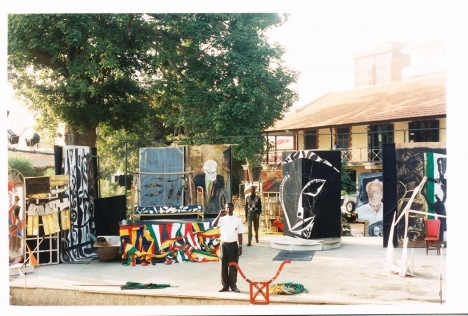The Senegalese artist collective, Laboratoire Agit-Art operated out of Dakar in the mid-1970s, at a moment when the city was a highly politicised, bohemian place to be. Their project was one of hybridity, catalysed in part by European Modernism, but also proving a reaction against the prevailing style and interests in Senegalese art up to that point. The members rejected the insitutionalised notion that art had to be beautiful (which the pursuit of, ironically perhaps, relied on imported fine art materials), and used junk and found objects in a combination of sculpture, performance and collaborative action. A symposium at Tate Modern this Friday (for tickets see here) will use the collective’s radical history to contemplate the wider questions surrounding the African avant-garde, with speakers including academic Elizabeth Harney on Senegalese modernism and Negritude as a philosophical term and as a national cultural policy, and the composer and musician, Neo Muyanga, who will discuss his work and collaborations on digital musical platforms, Pan-African Space Station and Chimurenga.
Advertisement
Advertisement
